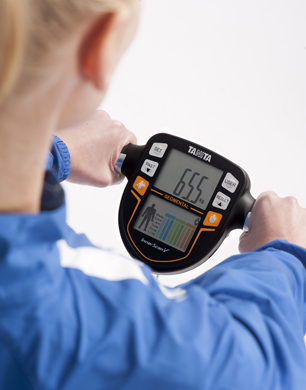 Statistics show that only one in ten people who make New Year’s Resolutions will end up successfully seeing them through and achieving their goals, with most of us scrapping our good intentions as early as January 23rd*.
Statistics show that only one in ten people who make New Year’s Resolutions will end up successfully seeing them through and achieving their goals, with most of us scrapping our good intentions as early as January 23rd*.
So why do we continue to make them? Bringing in the New Year with a pledge to make positive changes is nothing new and nowadays our main resolutions tend to revolve around health – to lose weight, get fitter, drink less, eat that sometimes elusive “five-a-day”.
But, come February, few of us are still committed to our resolutions, with many admitting defeat and slipping back into old habits. So what’s the answer? Scrap the resolutions and resign ourselves to another year believing that next year will be better? Or change our attitudes – and even the goals themselves – to achieve real results?
This year, tackle your New Year’s resolutions head on with Tanita Europe, leaders in health monitoring and Personal Trainer Golan Horesh:
Set a manageable goal
A lot of people tend to have an all or nothing approach to their New Year’s Resolutions. All too often people jump straight in at the deep end, crash dieting, exhausting themselves at the gym and expecting immediate results. Ultimately, this approach will set you up to fail and leave you feeling unmotivated and back where you began. For success, build up gradually to what you want to achieve. For instance, start with 30 minutes exercise per day, building up to 40 minutes until you eventually increase to a full hour. Most importantly, always remember it takes approximately four weeks for you to notice changes to your body, your partner about eight weeks to notice and twelve for the outside world, so stick at it!
Set a baseline for development
To achieve your goal, it’s important to know where you are before you start. If you’ve set yourself a weight loss target, it is important to know your weight before you begin, no matter how daunting it may be. In addition to knowing your weight, it is also advisable to use a body composition monitor such as the Tanita BC-731, to find out your body fat percentage, muscle mass, and basal metabolic rate (the number of calories your body burns at rest). These statistics will truly help you to monitor your progress, because even if your overall weight doesn’t change, you may be losing body fat and gaining muscle if you’re exercising. In addition, knowing your basal metabolic rate can help you to tailor a nutrition plan which is individual to you, with a higher chance of success.
Plan in advance
Fail to Plan, Plan to Fail – this statement is very true. The best way to make a training or fitness goal stick in the New Year, is to really try to make it part of your lifestyle. This approach will ensure whatever your goal, it becomes an integral part of what you do, rather than something additional that you’re trying to squeeze in around everything else. If it’s your New Year’s Resolution to work out more, pack your kit the night before, and be realistic – there is no point saying you’ll go to the gym every day when you know that it is unlikely to happen. Also, think seriously about planning your meals, whether its lunches at work or food shopping in advance, to help you avoid making poor choices and last minute panic buys when you’re hungry.
Enjoy the occasional treat
It is so important to reward ourselves on the way to achieving our goals, as well as once we achieve them. This will help us stick to the resolution without having to wait until we achieve our ultimate goal. Regular rewards can also help you to stay on track and prevent a ‘blow out’ which may see you abandon your goal altogether.
Think what you’ll gain
Without realising, most of us tend to set goals in the negative. To stand the greatest chance of succeeding, you need to think about the benefits and focus on those. For example, if your resolution is to lose weight, focus on the benefits of weight loss: you will be healthier, and you will feel and look better. It is really important to give your brain something positive to focus on, rather than suggesting you need to lose something.
* Professor Richard Wiseman from the University of Hertfordshire
For more information visit www.tanita.eu

